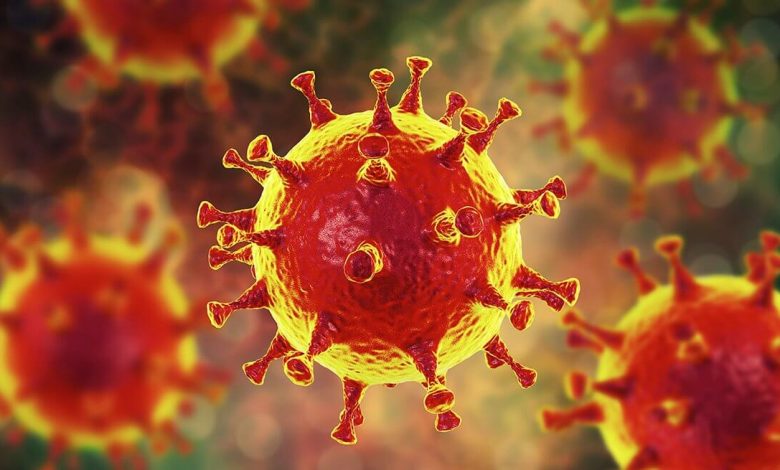By Arjun Walia | Collective Evolution
An article published in the British Medical Journal by Dr. Peter Doshi titled “Covid-19 Vaccines: In The Rush for Regulatory Approval, Do We Need More Data?” raises concerns regarding COVID-19 vaccine rollout, and one of them is the bio-distribution of the vaccine. This refers to the examination and study of where the vaccine and its ingredients go once injected into the body. Having sped up the approval process of these vaccines, it has been claimed that no compromises in the process of examining their safety were made. But the fact that no study for tracking the distribution of the vaccine within the human body was conducted for any of the authorized vaccines, we cannot say this is true.
Dr. Doshi points out that such bio-distribution studies are a standard practice of drug safety testing but “are usually not required for vaccines.” This in itself is concerning. Research regarding the bio-distribution of aluminium containing vaccines, for example, have raised concerns about injected aluminium crossing the blood brain barrier and being distributed throughout the body where it can be detected years after injection. This is important, because vaccines are a different method of delivery than say, ingested aluminium, which the body does a great job of getting rid of through digestion.
Bio-distribution studies weren’t performed for COVID vaccines because data from past studies performed with related, and “mostly unapproved compounds that use the same platform technology” were used to bypass them.
Dr. Doshi points out that,
“Pfizer and Moderna did not respond to The BMJ’s questions regarding why no biodistribution studies were conducted on their novel mRNA products, and none of the companies, nor the FDA, would say whether new biodistribution studies will be required prior to licensure.”
In his article, Dr. Doshi also references a report that Pfizer provided to the Japanese government. In the report there is a table containing lipid nanoparticle bio-distribution data.
This table shows where their surrogate “vaccine” (i.e. represented in the laboratory test by little bubbles of surrogate fat containing an analytical detection marker) ended up in the body of immunized rats, used in the laboratory as surrogates for humans…I would like to highlight some observations. First…a lot of the surrogate vaccine dose remained at the injection site, as one would expect. Remarkably, however, most of the vaccine dose had gone elsewhere….50-75% of the vaccine dose failed to remain at the site of injection. The big question is, where did it go? Looking at the other tissues shows some of the paces it went and accumulated…The surrogate vaccine was circulating in the blood. There is also evidence that a substantial amount of the vaccine went to places like the spleen, liver, ovaries, adrenal glands, and bone marrow. The vaccine went to other places as well, such as testes, lungs, intestines, kidneys, thyroid glands, pituitary gland, uterus, etc. The surrogate vaccine tested in a laboratory setting was widely distributed throughout the laboratory animal’s bodies. – Dr. Byram W. Bridle, Viral Immunologist, University of Guelph.
The above quote comes from a detailed report Bridle recently released for COVID-19: “A Vaccine Guide For Parents.” One of his main concerns is that the spike protein that our cells manufacture after injection enter into the bloodstream, and that the spike protein itself isn’t harmless. He goes into a detailed explanation in the report cited above.
According to him,
This information is incredibly important because recent data have come to light that the spike protein is “biologically active.” This means that the spike protein is not just an antigen that is recognized the immune system as being foreign. It means that the spike protein, itself, can interact with receptors throughout the body, called ACE2 receptors, potentially causing undesirable effects such as damage to the heart and cardiovascular system, blood clots, bleeding, and neurological effects.
Again, the report is quite detailed and you can access it here if you’re interested. Bridle is not the only one raising these concerns. He, like many other professionals out there, have been subjected to “fact checking” via Facebook third party fact checkers. Here’s a response from PolitiFact regarding Bridle’s claims and the science he points to.
PolitiFact claims that there is no evidence that the spike protein is ‘a toxin.’ They cite opinions from the CDC and other researchers claiming that no evidence has yet emerged stating the spike protein is dangerous. But they are not actually addressing the cited science Bridle is pointing to, they are merely saying everything he is saying is wrong.
This type of baseless ‘fact checking’ has been a problem during the entire pandemic. A recent article published in the British Medical Journal by journalist Laurie Clarke has highlighted the fact that Facebook has already removed at least 16 million pieces of content from its platform and added warnings to approximately 167 million others. YouTube has removed nearly 1 million videos related to, according to them, “dangerous or misleading covid-19 medical information.”
The article explains why fact-checking scientists has been nothing short of censorship of both evidence and educated opinion. This has happened numerous times throughout the pandemic with multiple renowned scientists. I recently wrote about a couple of examples here, and here, if you’d like to dig deeper.
It’s telling when science, evidence and opinions of experts are censored and subjected to ridicule throughout a global event like this. One has to ask: what is the motivation? Does a clear headed society seek to censor?
Any narrative that questions what we are receiving from government, health authorities, and mainstream media have been completely unacknowledged. Effectively dividing the public on important issues.
Once again, this begs the question, why? You would think it a time like this discussion and evidence would be shared openly and transparently, instead, we’ve seen the exact opposite.
This article (Pfizer & Moderna Fail To Respond To British Medical Journal About COVID Vaccine Safety Concerns) was originally published on Collective Evolution and is published under a Creative Commons license.

